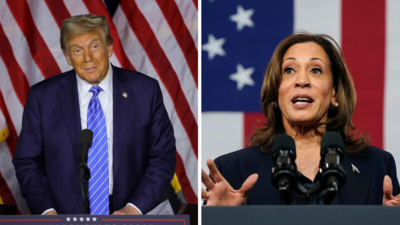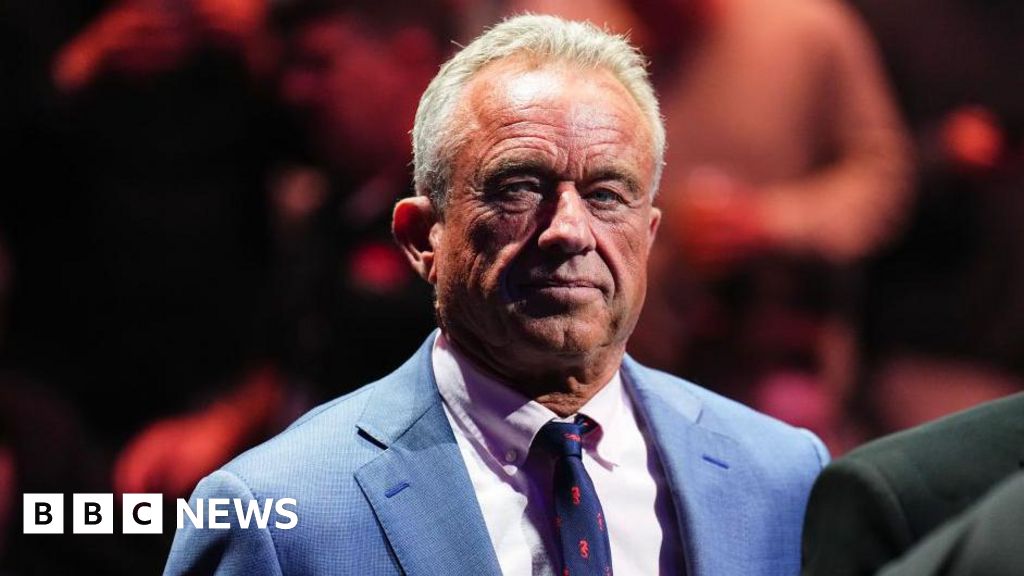
Donald Trump and Kamala Harris (R)
Millions of dollars are being bet on the outcome of the US presidential election after a court ruling opened the door for legal
political gambling
, raising the stakes in an already tense and closely contested race.
With just weeks to the D-Day, November 5 vote, election contracts on platforms like
Interactive Brokers
are heating up, following a Washington court decision that allowed a startup,
Kalshi
, to offer election betting despite ongoing legal appeals.
By Friday, contracts for a
Harris victory
were trading between 48 and 50 percent, making it a near 50-50 split between Harris and
Trump
. More than $6.3 million has already been gambled on this matchup alone.
This comes on the heels of the October 2 ruling, which marks a pivotal moment in a long-standing regulatory battle over the legality of
political betting
in the United States.
Offshore markets, which have operated outside US regulators' purview, have seen even larger sums, with more than $1.7 billion already placed on the Harris-Trump race through platforms like Polymarket. There, Trump holds a slight edge with 54 percent support versus 45 percent for Harris.
Supporters of election betting, or "event contracts," argue that these markets offer a financial hedge against potential outcomes, akin to futures trading. "These contracts allow people to take a position on what they think is going to happen and manage their risk accordingly," said
Steve Sanders
, executive vice president at Interactive Brokers, which has already seen more than a million contracts traded in a matter of days.
However, critics warn against widespread election gambling, especially in a politically polarised climate rife with disinformation. During recent court proceedings, Commodity Futures Trading Commission (CFTC) General Counsel Rob Schwartz raised concerns about the potential for misinformation to fuel bets.
"We live in a country where tens of millions believe the last election was stolen," Schwartz said, highlighting the risks of undermining public trust in
election integrity
.
Despite these concerns, the court allowed betting to continue while the legal case against Kalshi moves forward. Judge Patricia Millett acknowledged the need for election integrity but said the CFTC hadn’t shown enough evidence that election contracts would cause harm.
While the legal fight goes on, political betting markets will likely stay open through Election Day, which could influence the future of legal gambling in the US. For advocates like Pratik Chougule, co-founder of the Coalition for Political Forecasting, the court's decision is a big win. "It's been a good year for political betting," he said, hopeful that legal election markets will continue to grow.
Further court rulings may close political betting again, but this is unlikely to happen before the November 5 election, keeping the markets active for now.

 1 month ago
14
1 month ago
14










 English (US) ·
English (US) ·